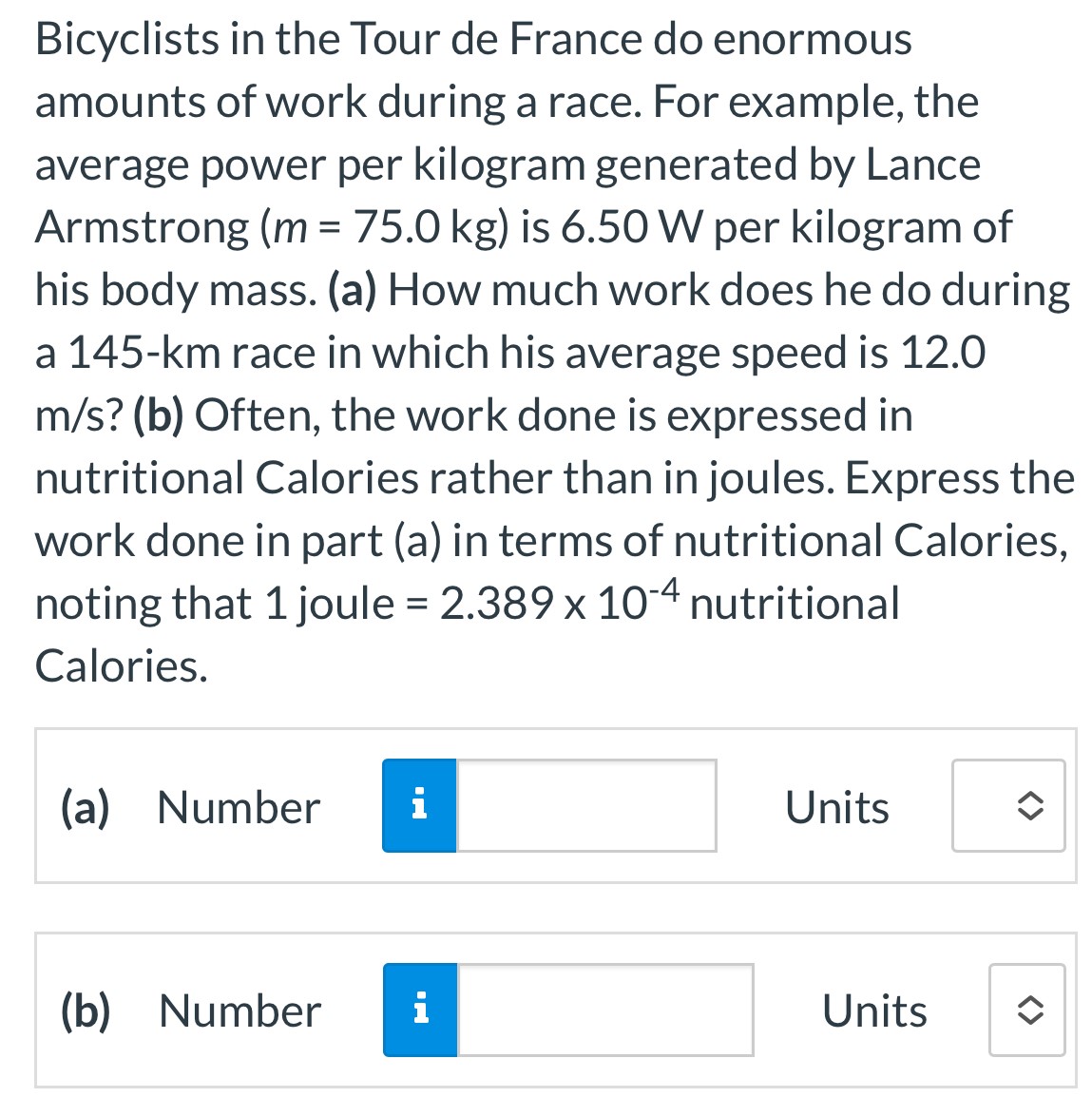Bicyclists in the Tour de France do enormous amounts of work during a race. For example, the average power per kilogram generated by Lance Armstrong (m = 75.0 kg) is 6.50 W per kilogram of his body mass. (a) How much work does he do during a 145−km race in which his average speed is 12.0 m/s? (b) Often, the work done is expressed in nutritional Calories rather than in joules. Express the work done in part (a) in terms of nutritional Calories, noting that 1 joule = 2.389×10−4 nutritional Calories. (a) Number Units (b) Number Units
